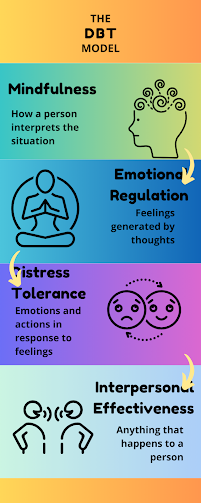Understanding a Single Parent
Extramarital pregnancy, divorce, death, and abandonment by
one parent are some reasons are why some men and women find themselves as
single parents. These occurrences are
not only life-changing, but they can also be traumatic, for both the single
parent and the children. The impact of these events and feelings are often
either misunderstood or may, at times, not even be considered as
significant. It is this lack of understanding
that makes the study of single parent’s psychology and mental health important.
For one, a single parent has limited time on his hands.
Managing a household with another person is difficult enough. It becomes even harder for those who must do
it alone. The single parent must take on
what are often seen as the typical roles of mother and father. The single parent must juggle employment and being
the financial provider (father figure) but also manage home, childcare, family
wellness and activities. (mother figure).
The single parent must find his own way of scheduling time to do all the
things that need to be done, including some time for relaxation and self-care.
A single parent may feel burdened by financial
problems. He is the only one earning for
the family. In trying to provide more/better financial security, he may seek a
second or even third job, thus limiting not just available time but also
physical, mental, and emotional reserves.
On the other hand, he may choose to live more modestly than others,
sacrificing or doing without personal needs or wants, to meet the needs of
other family members. He must make well
thought out decisions about savings. Because
a single parent is often concerned not only with his current financial
position, but also worries about future possibilities, he must decide between a
few sure investments for the present versus higher risk investments not recognized
until the future.
Of, course, if one becomes a single parent because of a
divorce or death of the spouse, there are even more problems that he needs to
face. It is normal to feel sad or
depressed. He needs time to grieve. This is also devastating for the children, so
the parent must learn to give loving, caring support to the child, frequently
pushing aside his own grief. Parent and
child can help each other to deal with and/or shorten grieving time, but it
takes great strength, work, communication and understanding, without blame or
excuses. Friends may help in the moving
on process, but grief, pain and loss can only be accomplished by the individual.
Additionally, the single parent may feel alone or rejected. Self-esteem and belief in abilities are fragile.
He must learn to nurture himself. Eating
and sleeping well require thought.
Exercise on a regular basis or engaging in a sport or hobby he enjoys are
important, even if it was something formerly shared. Sometimes joining a church group or
association in the community can help.
At other times these groups add to the loneliness, making the single
parent feel out of place, unaccepted or even more alone.
To minimize incidence of child problems like school dropout,
early pregnancy, drug usage and juvenile behavior, a single part must become
adept at communication and building strong relationships. Quality of time together with a child is more
important than quantity of time spent.
Important conversations are engaged in during small moments. Sensitive subjects may be approached at a
younger age than in two-parent families. A single parent may feel a need to
teach even more independence in a timely manner than another family. This cam be due to fear or anxiety over what
could happen to the parent or simply as a need for a child’s assistance to
maintain a safe, healthy, and secure environment. A single parent must be supportive and alert
to issues and behaviors which are associated with or more prevalent in children
who have experienced trauma of some form, including divorce, death, or abandonment
of some kind. Both sides must learn to
compromise and understand the challenges of each other. Children are engaged in activities of growth,
including school, peer pressure, self-esteem, and independence. Parents are juggling jobs, responsibilities,
financial concerns, and peer judgement.
Resources are available for a single parent which can be
assistive. He may join a group or
organization of single parents like him.
In this venue, members can share and discuss common problems and
experience. Hearing others failure and
success stories not only enforces he is not the only one with challenges but
also assists in looking at his own results from a different perspective. Educational activities such as lectures by
professionals and training seminars can provide useful information. With research, a single parent may be able to
locate organizations designed to support a single parent, such as Big
Brothers/Big Sisters. These organizations
may provide support in avoiding problem issues or even just provide respite
time for the single parent. There are
also websites which support a single parent.
Many parent resources can be found on the internet like chat rooms,
forums, newsletters, articles, and other forms of literature.
Being aware of single parent psychology and mental health will
aid in understanding a parent and their child better. Understanding some of the hard decision and
thinking of a single parent, can allow more support and open discussions of how
best to support and assist him.
Understanding that a single parent is doing their best under challenging
circumstances may change perceptions and lessen judgement of a success or
failure in a situation.




Comments
Post a Comment